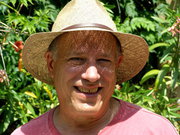Analysis of the Occupy Wall Street movement typically has centered on its message and the belief of most analysts that it lacks specificity and focus.
But perhaps, as New York Times architecture critic Michael Kimmelman notes in an essay today, "the encampment itself has become the point."
Kimmelman suggets that the Zuccotti Park encampment of Occupy Wall Street reminds us that Americans are losing sight of the centrality of common spaces to democracy and protest. He writes:
Living in Europe for the past few years, I often came across parks and squares, in Barcelona and Madrid, Athens and Milan, Paris and Rome, occupied by tent communities of protesters. Public protest and assembly are part of the European social compact. Maybe the difference in America has something to do with our longstanding obsessions with automobiles and autonomy, with our predilection for isolationism, or our preference just for watching, more than participating.
That isolationism, I would argue carries beyond politics and protest today to every corner of American life. The very mechanisms that join us -- social media such as Twitter, Facebook and blogs like this -- also separate us. Even the coffee shop, the metaphor for warm java and lively conversation, has become a corporate chain experience in which most customers stare not at a neighbor but at an open laptop. And it takes no more than riding an elevator, walking through the park, or sitting on the subway to notice that more and more people are self-isolated behind headphones, in front of smart phones, or staring at other digital devices.
In that sense, whatever becomes of the Occupy movement, it will have a good chance of re-establishing -- or perhaps even introducing -- the notion of the Commons to a new generation brought up on technological innovation but not enough serendipitous human interaction.
As a high school student in Vermont, I grew up sitting through long days at community Town Meetings, eating freshly made sandwiches and listening for hours while men and women gave earnest and passionate speeches about things such as trash pick-up or the need for all-day kindergarten. In college at my Quaker institution, I sat through what seemed to be an endless meeting of the entire community, working passionately but slowly to agree on a consensual response to the United States invasion of Cambodia.
I'm not suggesting my experiences were common to my generation, but they were life-shaping. And I do believe, whether it was at massive anti-war protests against the Vietnam War, at politically neutral rock festivals, or at pro-war legion hall meetings, that those in my generation more regularly shared their political and personal experiences. We grew up grew up face-to-face, not Tweet-to-Tweet.
Now, as they learn to build order into their impromptu tent-and-canvas cities, the younger participants in Occupy movements around the country are learning the challenges and comfort of sharing space, food, message, and need. It demands mutual respect. It's the antithesis of the kind of anonymous flaming or mass media roasting that have come to mark so much of what makes up American civic space and social interaction today.
"We come to get a sense of being part of a larger community," Brian Pickett, a 33-year-old adjunct professor of theater and speech and Occupy Wall Street participant told kimmelman. "It's important to see this in the context of alienation today. We do Facebook alone. But people are not alone here."
The experience of shared effort may in the end prove the most important "takeaway" of the Occupy movement. In the end, it faces long odds and may well fall short. It may fail to force any immediate change in the egregiously unequal distribution of wealth in this country. It may do nothing to regulate banks "too big to fail" and too arrogant to even see the need to pay back the billions in bailouts they got on everyone else's back. It may never take seed as a political movement in electoral politics.
But even if that happens, this movement offers hope that a new generation will learn of the power of the Common -- the power of not only shared political action but shared communal experience. That alone will ultimately serve society well.





